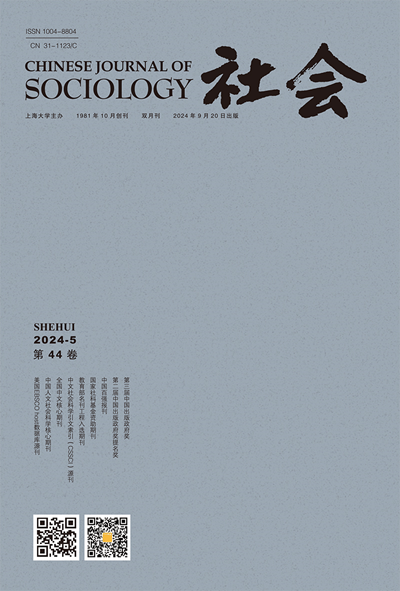Changing times and subjective well-being in urban China 2003–2013: An age-period-cohort approach
IF 1.8
4区 社会学
Q2 SOCIOLOGY
引用次数: 0
Abstract
This paper analyzes the intersection of individual lives and historical context by examining how cohort membership, historical conditions, and individual maturation influence subjective well-being in urban China. We use cross-classified multilevel models and repeated measures of happiness from seven waves of the Chinese General Social Survey (CGSS 2003–2013, N = 43,308). The results indicate that individuals born between 1956 and 1961 experienced setbacks at various pivotal moments throughout their life, including education, employment, economic stability, and social connections, and this cohort reports a lower overall sense of happiness when compared to other cohorts. The effect of aging on happiness comprises a U-shaped pattern; the middle-aged are the least happy. We observe an upward trend in happiness from 2003 to 2013. These results are confirmed by using subjective socioeconomic status (SES) as an alternative measure of well-being from CGSS 2003 and CGSS 2005 (N = 11,992). This paper contributes to studies of market transition by identifying the birth cohort as an important mechanism of inequality. It also augments the life-course paradigm by highlighting the significance of timing when individual lives intersect with historical context.2003-2013年中国城市的时代变化与主观幸福感:年龄段队列研究
本文通过考察群体成员、历史条件和个体成熟度对中国城市主观幸福感的影响,分析了个体生活与历史背景的交集。我们使用交叉分类多层次模型,并从中国综合社会调查(CGSS 2003-2013, N = 43,308)的七波中重复测量幸福。结果表明,1956年至1961年之间出生的人在一生中经历了各种关键时刻的挫折,包括教育、就业、经济稳定和社会关系,与其他人群相比,这一群体报告的整体幸福感较低。年龄增长对幸福感的影响呈u型;中年人是最不快乐的。从2003年到2013年,我们观察到幸福感呈上升趋势。这些结果通过使用主观社会经济地位(SES)作为幸福感的替代衡量标准得到了CGSS 2003和CGSS 2005 (N = 11,992)的证实。本文将出生队列确定为不平等的重要机制,有助于市场转型的研究。它还通过强调个人生活与历史背景相交时时间的重要性,增强了生命历程范式。
本文章由计算机程序翻译,如有差异,请以英文原文为准。
求助全文
约1分钟内获得全文
求助全文
来源期刊

社会
Social Sciences-Social Sciences (all)
CiteScore
1.70
自引率
0.00%
发文量
6799
期刊介绍:
The Chinese Journal of Sociology is a peer reviewed, international journal with the following standards: 1. The purpose of the Journal is to publish (in the English language) articles, reviews and scholarly comment which have been judged worthy of publication by appropriate specialists and accepted by the University on studies relating to sociology. 2. The Journal will be international in the sense that it will seek, wherever possible, to publish material from authors with an international reputation and articles that are of interest to an international audience. 3. In pursuit of the above the journal shall: (i) draw on and include high quality work from the international community . The Journal shall include work representing the major areas of interest in sociology. (ii) avoid bias in favour of the interests of particular schools or directions of research or particular political or narrow disciplinary objectives to the exclusion of others; (iii) ensure that articles are written in a terminology and style which makes them intelligible, not merely within the context of a particular discipline or abstract mode, but across the domain of relevant disciplines.
 求助内容:
求助内容: 应助结果提醒方式:
应助结果提醒方式:


